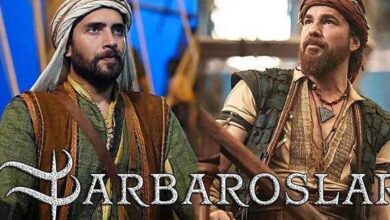Barbaroslar Episode 28 English subtitles free
Barbaroslar Episode 28 English subtitles
Barbarossa Episode 28 English subtitles
Barbaroslar Bolum 28 English subtitles
Barbaroslar Episode 28 English subtitles free The island of Lesbos hangs like a pendant on the ear of western Turkey. Rich and fertile, its capital, Mitylene, fronting the continent of Asia across a ten-mile-wide channel, it had been famous in antiquity as the home of the poetess Sappho.Barbaroslar Episode 28 English subtitles
Lesbos had also long been renowned for the excellence of its wine and its olives. Around the great Gulf of Kalloni in the west stretch the fertile plains where the vines abound and where the olives ripple like a silver sea when the north wind spins their leaves. Behind the town of Mitylene itself, another large inlet makes an excellent port, safe from the gale-force Meltemi winds of midsummer.Barbaroslar Episode 28 English subtitles
Throughout the Middle Ages Lesbos had remained a prosperous island, secure under the protection of the Byzantine Empire. But after the sack of Constantinople by the Venetians and soldiers of the Fourth Crusade in 1204, it had suffered a similar fate to all the other Aegean Islands.Barbaroslar Episode 28 English subtitles
It had become a trading center dominated, as well as disputed over, by Venetian and Genoese. It was inevitable, with the decline of Christian power —Europe itself being divided into a number of warring states— that an island like Lesbos should attract the attention of the Turkish master of the Asian coast.
After his capture of Constantinople in 1453, the triumphant Sultan Mehmet II began to occupy the islands of the Aegean.Barbaroslar Episode 28 English subtitles
As the master of Constantinople, as well as of the mainland of Greece, he could hardly tolerate these Italian enclaves in what had now become a Turkish sea.
Furthermore, the possession of Constantinople had at last given the Sultan a great seaport. For the first time in their history the Turks, predominantly land people, were faced with the necessity of creating a merchant navy, and a fighting navy to protect it. It was this, above all, which provided the main driving force behind their extraordinary naval expansion during the following century.
As for the islands, it was not only that the Sultan desired their revenues (and to be quit of Christians trading in his waters), but they had also become wasp nests of pirates.Barbaroslar Episode 28 English subtitles
Mitylene itself was one of the most notorious havens for Catalan, Italian, and Sicilian pirates, who raided the other islands and swarmed around the mouth of the Dardanelles, preying on Turkish shipping. They even had the insolence to raid the mainland of the Sultan’s dominions and carry off Turkish citizens for sale as slaves in the marts of Venice and Genoa.
A Sultan who was described as “Master of the East and West, the Possessor of Men’s necks, and the Peacock of the World” was not likely to tolerate such activities for long.
With the aid of his recently formed navy, he began systematically occupying the islands. Little did the European pirates who had operated from them realize that they had “sown the wind and would reap the whirlwind.” As the Turks gradually spread into the Mediterranean world they were to produce a race of men that would make the activities of the Italian pirates in the Aegean look like children’s games.Barbaroslar Episode 28 English subtitles
Among the islands of the Aegean, the Turks would learn—as had the ancient Greeks many centuries before them—the arts of navigation and seamanship. Thence they would expand throughout the whole Mediterranean until there would no be a European seaport safe from them. They would go so far as to threaten great inland cities so that even the Pope in Rome could not be sure that he would not wake one morning to find that his capital had been invaded overnight by marauding Turks.
It was in Lesbos that Barbarossa and his brothers were born. The island had fallen to the Turks in 1462 and, in accordance with his policy of settling deserving soldiers in newly conquered territory upon their retirement, the Sultan handed over lands and property to the men who had helped capture the island. Among those left behind to inherit the rich earth and the commerce that had formerly belonged to Genoese and Venetians was the father of the Barbarossa.Barbaroslar Episode 28 English subtitles
He has been variously described as a “retired janissary” and a “Sipahi soldier.” Certainly, although some Spanish writers claim that he was a native Christian, there is little doubt that he was a Moslem. His name was Ya’Kub (Jacob), but the most reliable sources state that he himself was the son of a Christian.Barbaroslar Episode 28 English subtitles
This would make perfect sense if one may assume that he had been a janissary; for all janissaries were the sons of Christians, forcibly abducted from their parents, converted to the Moslem faith in early childhood, and then trained to be the most formidable warriors of the Grand Turk.Barbaroslar Episode 28 English subtitles
Although the janissaries, so long as they served in the army, were forbidden to marry, it was natural that they should do so upon retirement. Yakub, accordingly, married a woman of Lesbos. She was, it would seem, the widow of a Greek priest. (Unlike the Church of Rome, the Orthodox Eastern Church does not forbid marriage to its clergy.)Barbaroslar Episode 28 English subtitles
About the ancestry of the Barbarossas, one thing is certain — there is no evidence that they had a drop of Turkish blood in their veins. Some Christian commentators have made great play with the fact that the two brothers who fathered Turkish prowess at sea were not Turks, but this is irrelevant.Barbaroslar Episode 28 English subtitles
No one has ever denied the Turks their prowess in warfare or their fanatical courage. The sons of Ya’Kub may have been Roumeliot, Albanian, or Greek in their physical lineage, but they were certainly “Sons of the Prophet” in their faith.Barbaroslar Episode 28 English subtitles
It is a curious thought that, when the classical Greeks of antiquity descended upon the land that they were to make their own, they dispossessed a Mother Goddess (hitherto worshipped throughout the eastern Mediterranean) and installed, among a pantechnicon of gods and goddesses, a male god, the King of the Sky. The female mother goddess was, as it were, driven underground, until, with the increasing complexities of Christianity, she reasserted herself as the Virgin Mary.Barbaroslar Episode 28 English subtitles
The Moslem Turks now, in their turn, removed the female from the religious calendar and brought back a conception of God not so far removed from the ancient Zeus. When nations are defeated, women submit to the new conquering males, and it is an ironic fact that the mother of the Barbarossas was the widow of an Orthodox Greek priest.Barbaroslar Episode 28 English subtitles
“A retired janissary, described as un honnete Musulman, made his home [in Lesbos], married the widow of a Greek priest, and evidently prospered as a potter, since he is said to have owned a vessel for the transportation of his wares and traded sometimes as far as Constantinople.Barbaroslar Episode 28 English subtitles
Most of the family must still have been resident there in 1501, when Venetian and French forces tried to seize the island as a suitable base for operations against the Dardanelles, on the strength of a Genoese report that it was molting rich, fertile el pregnable.
Both Turkish and Spanish records have it that Ya’Kub was a potter: an important trade then as now; and it is more than likely that he also had some acquaintance with the sea.
Indeed, on an island like Lesbos, how could a man live without being familiar with the sea? The briny wind swirled the sails of the windmills that ground the corn. It drove the coasters southwards to Chios, Samos, Andros, and all the clustering islands of the archipelago.Barbaroslar Episode 28 English subtitles
Islanders are usually seamen, and the sons of Ya’Kub were to prove that the salt was in their blood and the high north wind in their hearts.
There were four sons and two daughters of the marriage between the ex-janissary and the widow of the Greek priest.
Their mother’s name was Catalina. We do not know the names of her daughters, but then, in the eastern Mediterranean, daughters are nothing to boast about.
A man may proudly tell you how many sons he has, but he will omit to mention his daughters.
The sons, in the order of their seniority, were Aruj, Elias, Isaac, and Khizr (later to become the most famous man in Turkey, and indeed in the Mediterranean, under his acquired name of Kheir-ed-Din).
It is possible that the two girls were brought up as Christians, under the Moslem custom which permitted the females to be raised in the religion of their mother. The four boys were, without any doubt, brought up as Moslems —and there were few Moslems more dedicated to their faith than janissaries like their father. The fact that Aruj had a red beard and Khizr a brown, or auburn, a beard is an indication that they were not of Turkish blood. But, in their faith, like so many converts or sons of converts, they were more dedicated than those who had never known any other religion.
Aruj, the eldest son, seems to have started his career by working aboard his father’s boat; Elias to have studied to become an imam; Isaac to have been a carpenter; and Khizr, the youngest, to have helped his father in the pottery.
The sixteenth-century Spanish historian Gomara as well as Diego Haedo (another contemporary, and a priest) both refer to the family background of the brothers in admiring terms.
Although these historians came from the country that suffered most from the later depredations of the “red-bearded” brothers, and both were acquainted with men who had lived and worked with them, they never at any time descended to the vulgar abuse of the Barbarossas which became current among later European chroniclers.
Indeed, if one may judge from their accounts, Ya’Kub and his wife and children were a model family: no hint here at all of the bad upbringing leading to violent or “disgraceful” lives. The more one investigates the background of Aruj and Khizr, the clearer it becomes that it was not so dissimilar from that of Sir Francis Drake. Raised in a poor, but the religious, environment, taught a craft, and expected to fend for themselves as soon as they reached manhood, these Turks were far from coming from a bad background.
They were to be libeled in later centuries, but not by their contemporaries, and, just as Sir Francis Drake was to be hailed by the English as a great admiral while abused by the Spaniards as no more than a pirate, so these sons of Ya’Kub were to suffer at the hands of many European writers.Barbaroslar Episode 28 English subtitles

The first authentic story we hear of the early career of Aruj concerns a disastrous encounter with a galley of the Knights of St. John. The island of Rhodes, where these Christian warriors had made their home, was still firmly in their grasp. Indeed, it was not until 1522 that the Sultan, after a lengthy and bloody siege, finally expelled the knights from Rhodes.Barbaroslar Episode 28 English subtitles
But at the time when Aruj, in company with his brother Isaac, was captain of a small galleot operating off the Dodecanese islands, the knights were very much in command of those waters. It is not known whether Aruj was at this time attempting to trade legitimately, or whether he was already embarked on a corsair’s career. But in all probability, as was quite normal at the time, he was combining legitimate trade with a little piracy on the side.Barbaroslar Episode 28 English subtitles
As the Sultan gradually expanded his sway southward through the Aegean, independent citizens were often encouraged to harass what was left of the Italian-occupied islands. Certainly, there was no discredit felt in raiding the lands and possessions of the Christian enemy.Barbaroslar Episode 28 English subtitles
Unfortunately for Aruj, he was destined on this occasion to fall in with one of the galleys belonging to the redoubtable Knights of St. John. “Those who have not seen a galley at sea, especially in chasing or being chased, cannot well conceive the shock such a spectacle must give to a heart capable of the least tincture of commiseration.
To behold ranks and files of half-naked, half-starved, half-tanned meager wretches, chained to a plank, from whence they remove not for months together (commonly half a year), urged on, even beyond human strength, with cruel and repeated blows on their bare flesh, to an incessant continuation of the most violent of all exercises; and this for whole days and nights successively, which often happens in a furious chase, when one party, like vultures, is hurried on almost as eagerly after their prey, as is the weaker party hurried away in hopes of preserving life and liberty.”

The lookouts aboard the great galley, Our Lady of the Conception, sighted the Turkish galleot as she slid out from behind a wooded point. At the very same moment Aruj, Isaac, and the rest of their crew caught sight of the cross that waved on the standard above the poop of the galley.Barbaroslar Episode 28 English subtitles
They knew at once that this vessel belonged to the greatest enemies of the Turks, and indeed of all Moslems, the Knights of St. John—“the Chivalry of the Religion” as they were proud to call themselves. The Turks bent to the straining oars. Freemen all, they were well aware of the fate awaiting them if they fell into the hands of the knights.
Had there been any wind, it is just possible that the galleot might have escaped owing to her greater maneuverability, but it was a calm and empty day—the weather for which the fighting galley had been developed.Barbaroslar Episode 28 English subtitles
As the fleeing Turks sweated and strained over their oars, the galley drew remorselessly nearer. Aruj, who in later years was often enough to enjoy the satisfaction of swooping upon a fat Christian prey, now found himself in the position of a sparrow hawk that has been unwise enough to fall foul of an eagle.

On the poop of Our Lady of the Conception, there were gathered “the knights and gentlemen, and especially the admiral or captain, who sits at the stem under a red damask canopy embroidered with gold, surveying the crew, surrounded by the chivalry of ‘The Religion,’ whose white cross waves on the taffeta standard over their heads, and shines upon various pennants and burgees aloft . . The shrill call of the under officer’s silver whistle gave the order for the rowers to increase the stroke. Plash by plash, the galley
drew nearer to the Turkish galleot— until it was within reach of the forward bow chasers. The seamen on the rambade now held their smoldering slow matches to the fuse holes of the guns, while the arquebusiers and archers stood ready to open fire.

Escape was impossible. Aruj shouted down to his crew to prepare to surrender. But before it could be made clear to the pursuing galley that they would meet with no resistance, they had begun their initial onslaught. With the first salvo from the guns and from the soldiers on her prow, Isaac, Aruj’s brother, was killed outright along with a number of other Turks.
The galleot was overwhelmed and “Aruj and his little company were ironed and flung into the depths of the galley until such time as they should be wanted to take their turn at the oars. In this ignominious fashion ended his first attempt at independent piracy …”
Now he learned for the first time, as did innumerable other sailors in those days, what the word “failure” really meant. Whether you were a Christian or a Moslem, a man or a woman, to travel upon the Mediterranean in the fifteenth and sixteenth centuries was to hazard your life and liberty.
If you were a man, you might finish on the oar bench or in the slave market. If you were a woman you would end up if you were fortunate in the harem of a rich Turk, or as an unpaid drudge in the kitchen or the fields.
Life was a cheap commodity. To survive beyond childhood and beyond puberty was an achievement in itself. After that, the strong, the cunning, and the lucky might continue to enjoy the few material and sensual comforts that divert the human animal. Isaac was eliminated from the continuous conflict of the world, but Aruj and the survivors from his crew were now to serve at the oar benches.


